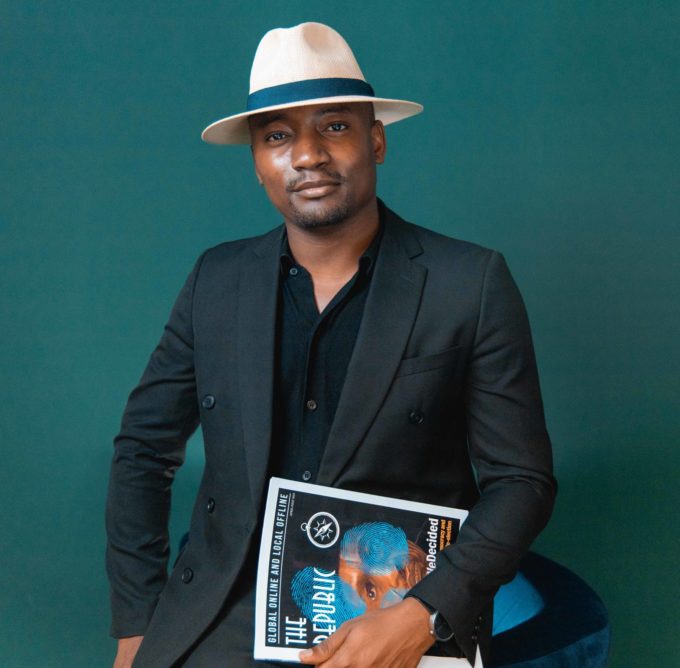
Brittle Paper is ten—has it really been that long? It feels like only yesterday we were exchanging emails about #NigeriansAtHogwarts, relishing (at least, I was) in what had been a global trend started by my reading of some odd news, my unwavering obsession with the Wizarding World (really, where are all the black wizards?), and my being under a master’s thesis-fueled craze. Time, however, operates in this manner. Designed to be indifferent, devoid of ideology, it is we who imbue time with meaning, who define lives by it and, in turn, give time definition. Between our temptation to ‘look back’ and our Gatsby-esque compulsion to ‘beat on, boats against the current’, we give time precisely what to tell.
On many occasions since my Brittle Paper interview, I’ve had to look back at #NigeriansAtHogwarts; the most common reason being the messages I often receive about how long it has been since we had that kind of hashtag on Twitter. Some of the people behind these messages might also argue that least of all given my role as Editor of The Republic, I belong to a group of people responsible for ending Twitter’s good old days. Twitter, such people seem to suggest, was once and no longer is an open, casual, and even ‘safe’ space. Gone are the days of ‘It’s Just Twitter’, Follow Fridays and the routine banter and shaming in-between. We are all woke now, though some may argue sleepless under the eye of ‘cancel culture’.
More than a longing to bang out a troublesome tweet, when people insist today that our online communities have changed, becoming, for instance, less tolerant of ‘free speech’, there’s the temptation to dismiss these claims as false or alarmist. Such claims, however, are part of a much larger nostalgic turn the world is currently experiencing. Like Brittle Paper—which asked me to consider, among other things, the last decade from the perspective of my peers—people on Twitter are not alone: for some time now, much of the world has been, in one way or another, carrying out a similar exercise in nostalgia; for a ‘healthier’ world. The world in which J. K. Rowling is still on the right side of history. A world worth seeking refuge in for its lack of Donald Trump’s US leadership; certainly, a pre-COVID-19 world; indeed, a world so promising that even Africa, its most ‘hopeless continent’, was said to be ‘rising’. Obama’s world, which is to say a post-racial world. Of course, an American world (we were just living in it!), absent the rise of China or the return of Russia and yet in denial about the fall of Britain. This was a world of such copious opportunities that even Nigeria saw itself emerging from the decade as one of the top twenty economies in the world. And not as a symptom of hyperopia but, in fact, the effects of a vision we claimed was 20:20.
***
The privilege of ‘representing’ my peers is not lost on me either, so long as it means offering a perspective that invites more discussion from those with whom I share a generation. I am, after all, an editor and editors consider not simply the discussion at hand but the larger conversation—the overarching discourse, which must extend across (and, thus, connects) geographies, times and, indeed, generations. Solipsism explains why everyone insists their generation is unique and mine is unlike others, lacking the staid optimism of older generations and the ruthless cynicism of younger ones. It is true that, in Nigeria at least, we are among the first in a long line of descendants that have yet to experience a working country; in fact, the most stable many Africans my age have ever experienced their country is under the boots of successive military governments. So, we are not a hopeful generation but a generation of hopefuls: individuals, who despite the surrounding entropy, hold fast to the continuous tense for its promise of infinite possibility. Turning and turning. Learning, unlearning. The ones once waited for now doing the waiting for the change that is coming.
The bridge between analogue pasts and digital futures. Such is how I would describe this generation. A people who by incidence of time, as though in a Salman Rushdie novel, possess the ability to embody multiple lives at once; an ability most displayed in our fractured understanding of relationships: offline/online—a loved one being a person you know offline but have likely blocked online; a friend being someone you follow but rarely engage with online (yet is not to be confused with an ‘online-friend’ who is someone you engage with frequently online until they suggest meeting in person). Who can forget categories such as randos (noun meaning known strangers) and mutuals (the friends you share with randos) or that not love but unrequited following on social media is the tragedy of our time?
Nostalgia, these last couple of years have shown us, can be productive. We need only look to the Alté movement, the emergent community of Nigerian artists today, who situate their creative practice in old-Nollywood aesthetics, celebrity and glamour. #NigeriansAtHogwarts, which in many ways drew from my own time at an English boarding school, was also nostalgic. The years 2008 to 2010 were extraordinary in ways only those who shared my experience of Britain can ever believe or understand. Or how does one explain a group of under-18s who could charm their way into any club? Who divided their time between countryside schools and nightlife in London? Or a culture of getting fake I.D.s (some even passports) before getting a driver’s license? Unless we remind ourselves, we might easily believe we dreamt the whiteness of the schools we left for throat-black nights we spent scraping our shoes off the Diagon Alleys of Mayfair, mischief managed. Our loitering on Edgware Road becomes folk tale and, urban legend becomes how, eventually, we were the vessels upon which Afrobeats made its initial landing on Britain. To the world, we’d have been too morally ambiguous to be Afropolitans—a meld of Skins’ depravity and the veneer of Gossip Girl, representing both the best and the worst of Nigeria, is more like it. And yet, to us, everyone else might as well have been a muggle, innocent of the worlds we kept hidden in plain sight. With #NigeriansAtHogwarts, what began as a way of unpacking my own experience of being black in a majority-white school, spooled across Twitter taking on a life and an afterlife of its own.
***
As a collective resource, the productive potential of nostalgia is not new—Nigerians are nostalgic people; nostalgia informs and can explain much of who we are and what we do. After all, to be Nigerian is to remember when Nigeria was Nigeria. If not as memory, as ideology. As recently as 2015, we produced a president by voting not on policy, plans or promise but on nostalgia, learning in the process the downsides to such practice. Still, in 2019, most of us renewed the vote. But there is another way of practicing nostalgia, one many people do online today, such that its effects are insidious. Such claims as we need a return to our former, supposedly freer days, remind us that on its own, nostalgia, like all resources, is useless, a thing of magnitude awaiting distribution and direction. Which in the case of Twitter would not be to remind us of good times (as though such times ever do exist) but to deflect from our current times. In other words, to disengage. We are past noting that our world is polarized, or that we live in an era of globalized populism and are caught between a rapidly normalizing distrust for experts (see: the politicization of social distancing and masks) and an alarming necessity of expertise (see: the pandemic). What we have yet to reckon with, however, is what it means to live post-disagreement; and what it means to witness the cultural emergence of disengagement, which must not be confused with the former D-word. After all, disagreement requires that competing arguments share a subject. Disengagement, however, implies refusing to acknowledge both the counterarguments and the subject.
When people no longer derive value in disagreeing, they practice disengagement. I myself have often recommended practicing disengagement but to members of marginalized groups, as a mode of resisting the urge to explain one’s existence to an oppressive force. But no one group has a monopoly over disengaging. Moreover, at its most dangerous, disengagement uses the language of agreement. It poses as agreeing but only to stifle discourse. Hence why we must pay even closer attention to what we agree with; why one of the questions we must grapple with in this lifetime concerns if people are becoming more conscious because they truly are conscious, or because they have learned the right things to say. That is, do more people hold progressive views, or have more people simply learnt to speak the language of progressivism? Not since1984 has language been more ostensible; and we see the need for questioning language in the virality of calls for ‘listening’ to marginalized groups; in the irony that is how such calls often drown out or distract from the very marginalized groups they supposedly amplify. Simply put: if everyone is saying listen, who then is actually listening?
With the evolution of our online communities, as more groups have emerged, organized and asserted themselves, the response from other groups has been to take their real views underground. Such groups find the demands for accountability, accuracy or ‘doing the reading’ and the frequency of the backlash they receive when they refuse, exhausting. So, they demand the luxury of echo chambers. If people believe there no longer is any value to disagreeing online, it is for several reasons. The most fundamental reason, however, being falling out of touch with the meaning and purpose of disagreement.
***
#NigeriansAtHogwarts impressed on me the importance of conversations. Additionally, it showed me why it was necessary to rethink our understanding of conversations as incidents that cannot be valid without our participation and recognition. A question I received even from other Africans after #NigeriansAtHogwarts was why I focused on Nigerians (as opposed to a supposedly more ‘inclusive’ AfricansAtHogwarts). In truth, it was because I wanted to avoid the hashtag becoming a typical Africa-related trend; there are far less experts on Nigeria as there are ‘Africa experts’; Nigeria is a smaller room and I wanted to enjoy that. At the same time, as I’d expect anyone from the continent to, I disagreed with the notion that the label ‘Africa’ was automatically more inclusive. Because such a notion speaks to a dishonest vision of the continent and, at best, an unrealistic if not outdated model of pan-Africanism. Many African contexts have been robbed of place, of their secrets, their people, the importance of their own unique histories and cultures, of truth. Blanket statements only cover the wounds. So, in starting #NigeriansAtHogwarts, what I had hoped to see (which Jamaicans and African Americans did) were #GhanaiansAtHogwarts, #MozambicansAtHogwarts, #TunisiansAtHogwarts and so forth. Specificity is a necessary condition for inclusivity.
Beyond a lack of appreciation for specificity, however—and I would come to understand this from editing and publishing Republic essays—the frustration many have today towards online communities stems from a misunderstanding of inclusion. Intentional or not, a misunderstanding that is eventually used to justify acts of disengagement. As early as the 90s, the promise of the internet was access, and many bought into that promise. So much so that several years after, technologists framed this access in the language of human rights (see: the 2015 article by Facebook’s Mark Zuckerberg and U2’s Bono, ‘To Unite the Earth, Connect It’). These days, however, it is obvious that there are holes in this vision. The threat of digital colonialism has groups of people questioning the meaning of this access. To who? For whose benefit? And in finding a response, many have chosen to stay inaccessible (see: India’s 2016 protests against Facebook’s Free Basics).
People’s lives are not for consumption, neither are their struggles. The internet, where much of living and struggling takes place these days before they become ‘content’, suggests otherwise. The powerful stay invisible while the lives and deaths of those without power are on display. And after consuming marginalized groups’ struggles for inclusion, with the internet the ideal smorgasbord, the lesson many have derived is that it is they, the non-marginalized, who must be included in the conversations and spaces of the marginalized and not the marginalized in theirs. It explains why men will ignore our ongoing crisis of masculinity to point out ‘real feminism’ to women; why oppressive groups tend to believe they can define not only their own ways of oppression but also the terms of resistance. In such situations, ‘freedom of speech’ becomes the entitlement to an audience, even and especially when audiences need to or would rather speak among themselves. So that to question that entitlement or to refuse to acknowledge it is to be accused of stifling freedoms.
***
In my work with authors, it is important, to borrow from Susan Sontag, that they ‘pay attention to the world’ and that they are prepared for a world that needs reintroducing to the value of disagreement. Editing, in many ways, has led me to a new generation of informed Nigerians, many of whose writings convey the most important thinking from Nigeria today. But even these authors sometimes need reminding that the purpose of writing is not to seek validation but to articulate often personal truths. Last year, when an author approached me with an essay about her attempts at reconciling her religion with feminism, and her eventual decision to choose her religion, it was crucial that she understood the literature she was contributing to. That she knew, first and foremost, where the opportunity for her writing to make a difference was; which was in fostering a conversation that centered the voices of other Muslim women, many of whom struggle to articulate a similar dilemma between feminism and their faith. Publishing an essay at The Republic is a straightforward process. After reviewing the essay for potential, a team assigns it to an editor with the appropriate expertise and then, once accepted, the essay embarks on three rounds of editing. The purpose of these rounds is to encourage agreement and disagreement. After working with close to 200 authors, we have found that where many authors struggle is in either paying too little attention to their counterarguments or in taking their biases for granted. A Republic editor, however, wants to know how an author has arrived at an argument and measures an argument by its counterarguments. As such, the editor will need the author to pay close attention to what they disagree with and even closer attention to what they agree with. After editing, a team of editors then thinks about the afterlife of the piece, how it will be experienced on social media and offline, what kinds of conversations it will inspire and which of those conversations The Republic will promote. The entire process takes anywhere between three weeks and half a year (sometimes, we work with authors who have never been edited or edit topics that require more time to settle).
Her essay took five months to publish, and while editing, whether I agreed or disagreed with her stance on feminism was something the author wanted to know. However, my standard response in such situations is The Republic is progressive and independent. Progressive in that we are concerned with moving conversations forward and independent in that we are so concerned despite our personal leanings. Such a posture allows not necessarily for balance (which is often meaningless) but for rigor, which authors often overlook when they write along the grains of society. A woman writing what might appear to some as a ‘take-down’ of feminism is bound to receive a lot of attention and, in Nigeria, much praise. My advice was to expect this. After which, to interrogate it, to question the meaning of such endorsement and who it comes from. And, still, to remain aware and unwavering about who the audience of the piece was, Muslim women, who in Nigerian feminist discourse today, are underrepresented. Because agreeing with society does not necessarily imply reinforcing it, if such agreement invites or inspires alternative responses. Welcome disagreement from such women, I said. Seek it and engage. As disagreement is necessary not only to test the integrity of an argument but also if we are to advance the conversation towards building a more inclusive archive. Several weeks later, after declining numerous response essays from Muslim men, we published another Muslim woman, with a counterview.
Our Role as Editors
If the world seemed quiet or even peaceful before, it is because we are emerging from a time when the most radically progressive thing one could do was listen. Indeed, times have changed but that is only because we have. And now that many of us have been listening, it shocks us the things we have heard. We are stunned to learn that progress is disappointed, loud, angry, impatient and unforgiving—recall James Baldwin who asked: ‘How much time do you want for your progress?’ or Langston Hughes who wrote: ‘I am so tired of waiting / Aren’t you, / for the world to become good / and beautiful and kind?—but is still progress all the same.
Now, then, in the midst of progress, is the time to engage, and editors have never been more crucial. Because, in the endless debating, our communities are not necessarily becoming more hostile, they are becoming more honest. In our hesitance, as individuals, to share uninformed opinions, our freedom of expression has not necessarily been curtailed but has been refined. Those few seconds when we decide not to click Send in order to think about what we are about to share, to consider who might read it and what their responses might be; each time we assess the potential consequences both immediate and down the line of our contributions, we are editing. Editors, of course, are people who perform such acts knowingly. And as our communities become increasingly polarized, the rifts are where we must situate our work. Our role then as editors is to seek out what is lost in-between, to pursue discourse, to nurture conversations, protecting those that have just begun and need more time. After all, we do not need to participate in the lives of others for those lives to have meaning to us. This is something all marginalized groups already know. The same holds for conversations. Our role then as editors is to question disengagement and to see disagreements for their potential. It is, in other words, to pay close attention. To recall Chinua Achebe, who wrote that ‘wherever something stands, something else will stand beside it’. It is, then, for us to ask of our worlds what or who is missing?
***
This piece was partly supported by The Republic.


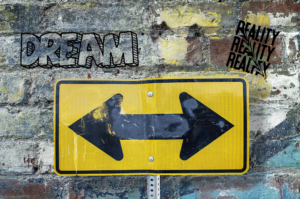
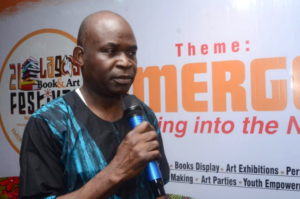
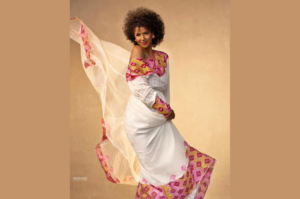


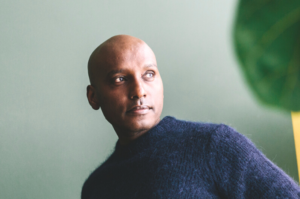

Adeyemo Sodipo September 28, 2020 08:21
Thank you for the brittle paper. I just found out about from Quartz. It is definitely a labor of love.